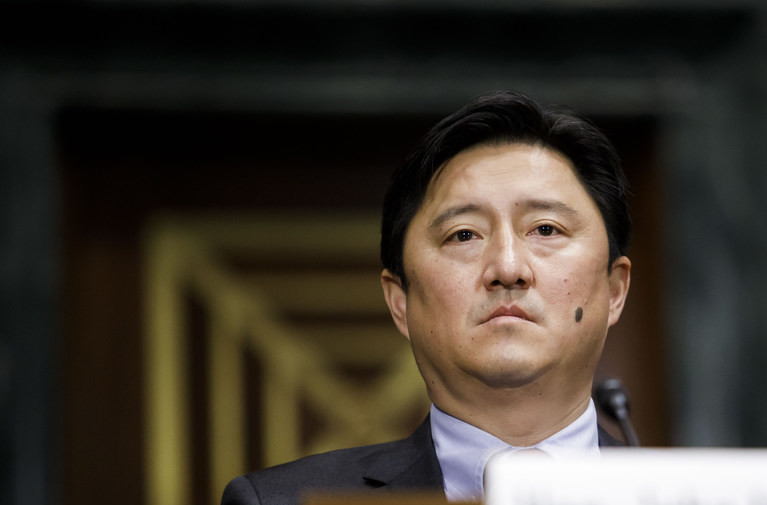FTC Scores Win Against Amazon: Judge Rules Data Collection Violated Consumer Protection Law in Prime Signup Case
In a significant victory for federal regulators, a U.S. federal judge ruled on September 18, 2025, that Amazon.com Inc. violated consumer protection laws by collecting billing information from Prime subscribers before fully disclosing the service’s terms. The decision, granting partial summary judgment to the Federal Trade Commission (FTC), sets the stage for a high-profile trial next week on broader allegations of deceptive enrollment and cancellation practices—issues that could cost the e-commerce giant millions in penalties and force operational overhauls.
This ruling in the ongoing FTC lawsuit underscores escalating scrutiny on Big Tech’s subscription models, where “dark patterns”—manipulative design tactics—are accused of trapping consumers in unwanted memberships. As Amazon faces trial in the U.S. District Court for the Western District of Washington, the outcome may redefine transparency standards for online services, impacting everything from streaming to retail.
The Ruling: Summary Judgment on ROSCA Violations
U.S. District Judge John H. Chun delivered the blow in a pre-trial order, finding Amazon liable under the Restore Online Shoppers’ Confidence Act (ROSCA) for failing to obtain “express informed consent” before charging users. ROSCA, enacted in 2010, requires clear disclosure of material terms—like recurring fees and cancellation policies—prior to collecting payment details for negative-option marketing (automatic renewals unless opted out).
Chun’s decision was unequivocal: “No reasonable jury could find in favor of Amazon when provided with this evidence.” He rejected Amazon’s defenses, including claims that Prime’s terms were adequately displayed and that ROSCA doesn’t apply to its model. The judge also held two unnamed Amazon executives personally liable for proven violations, blocking the company from shifting blame.
The FTC hailed the ruling as a “major step toward accountability,” with Bureau of Consumer Protection Director Chris Mufarrige stating, “Today’s decision affirms that Amazon defrauded American consumers by failing to disclose all terms of Prime before collecting consumers’ payment information.” Amazon, which has denied wrongdoing, plans to appeal aspects of the order but must now defend the core claims at trial.
The FTC Lawsuit: Dark Patterns and the Prime Trap
The FTC sued Amazon in June 2023, alleging the company used deceptive tactics to enroll over 100 million users in Prime—its $139 annual membership offering free shipping and streaming—without clear consent. Key accusations include:
- Signup Deception: Pop-ups and buttons like “Buy Now” allegedly collected payment info before revealing recurring charges, burying terms in fine print.
- Cancellation Hurdles: Users faced a “clunky” process requiring multiple steps, account navigation, and upsell prompts—thwarting tens of millions of exit attempts.
- Data Harvesting: The suit ties these to broader data collection practices, where Amazon allegedly used billing info to lock in subscribers via personalized nudges.
The agency claims these “dark patterns” violated ROSCA and Section 5 of the FTC Act (unfair/deceptive acts), seeking up to $5 billion in redress for affected consumers and injunctions to simplify signups/cancellations. Amazon counters that Prime benefits users overwhelmingly, with 200 million members worldwide, and that its processes are “industry standard.”
Trial, set for late September 2025, will focus on these remaining issues after Chun denied Amazon’s motion to dismiss in 2024.
Background: ROSCA and the Rise of Subscription Scrutiny
ROSCA emerged post-2009 financial crisis to curb “free trial” scams, mandating “clear and conspicuous” disclosures and easy opt-outs. Amazon’s case builds on FTC wins against companies like Publishers Clearing House, but marks the first major test against a tech titan.
This suit fits a wave of subscription litigation: Similar actions target Apple (App Store trials) and Netflix (billing transparency), with 2025 seeing a 25% uptick in ROSCA claims per Law.com data. Under the Biden-era FTC’s aggressive stance—continued somewhat under Trump—it reflects bipartisan concern over consumer “gotchas.”
Reactions: FTC Jubilation, Amazon Defiance, and Industry Ripples
The FTC celebrated the ruling as a “reminder to online marketplaces that violating the INFORM Act can result in serious consequences.” Consumer advocates like those at the Electronic Privacy Information Center (EPIC) called it a “landmark for data privacy,” tying it to broader surveillance capitalism critiques.
Amazon pushed back: “We respectfully disagree with the court’s decision and will continue to fight these misguided claims,” a spokesperson said, emphasizing Prime’s “high satisfaction rates.” On X, reactions split: Users vented about “Prime jail” (#CancelPrime trended with 50K posts), while defenders lauded perks.
Legal experts predict a tough road for Amazon: “The executive liability hook is a game-changer—settlement talks will heat up,” noted a Perkins Coie partner. Shares dipped 1.2% post-ruling, erasing $20 billion in market cap.
Implications for U.S. Consumers: Wallets, Privacy, and the Subscription Economy
For everyday Americans, this ruling could mean refunds for millions enrolled unwittingly—potentially $100+ per user—and easier exits from Prime, which generates $40 billion annually for Amazon. Broader wins might curb data grabs, protecting privacy in a world where 80% of adults use subscriptions, per 2025 Deloitte data.
Economically, it pressures e-commerce margins, possibly hiking prices or spurring “freemium” shifts. Politically, under Trump’s FTC, it signals continued enforcement on consumer harms, balancing deregulation elsewhere. Technologically, it accelerates “frictionless” redesigns with AI-driven disclosures.
Conclusion: A Pre-Trial Blow with Trial-Size Stakes
Judge Chun’s ROSCA ruling hands the FTC a powerful edge as Amazon’s Prime practices face the courtroom spotlight, potentially forcing the retail behemoth to rethink its user data playbook. With deceptive signups and sticky cancellations on trial, this case could herald a new era of subscription accountability—making it harder for tech giants to profit on confusion. As the gavel falls next week, consumers watch: Will transparency triumph, or will Amazon’s empire endure unscathed? The FTC Amazon Prime ruling, ROSCA violation Amazon, dark patterns FTC lawsuit, Amazon consumer protection case 2025, and Prime subscription fraud allegations will dominate headlines, urging shoppers to review their own memberships.
